Over the last 20 years, there have been multiple incidents of serial killings in Iran that were striking not just for the horrific nature of the crimes involved, but for how they were received by the Iranian public. Among them have been Gholamreza Khoshroo, 32, known as the “Night Bat”, who raped and murdered nine women before finally being caught and hanged in 1997, and Mohammed Bijeh, a 22-year-old who was convicted of raping and killing 41 young boys in 2005.
Most famous among them, however, is Saeed Hanaei, who murdered 16 sex workers in Mashhad and was executed in 2002. The story of the man known as the “Spider Killer” has now been the subject of three films: Maziar Bahari’s original 2003 film And Along Came a Spider, the Killer Spider by Ebrahim Irajzad in 2020 and finally Holy Spider, which was directed by Ali Abbasi and screened at the 2022 Cannes Film Festival on Sunday.
Abbasi’s film, a dramatization of the real story seen through the eyes of a female journalist trying to cover the case, earned a seven-minute standing ovation at Cannes as the credits rolled. The Hollywood Reporter lauded its “in-your-face storytelling” and the chilling manner in which, as he was in real life, Saeed Hanaei is remorseless about his crimes and in fact regards them with “hateful and superior satisfaction”.
Bahari, the founder of IranWire, made his original documentary in the run-up to Hanaei’s execution and interviewed the killer himself before he died. Hanaei’s murder spree had taken place between July 2000 and August 2001, and he was hanged the following April. He told the camera in an exclusive interview before his death: “I am not repentant at all for what I have done. Had I not been arrested, I’d have wanted to kill 150 of them.”
Why is the Saeed Hanaei Case So Compelling?
At the time, Bahari says, “There were not many cases like that of Saeed Hanaei. We hadn’t seen such a thing in Iran as a person killing 16 sex workers with ease, although there might have been similar cases around the world.
“Filmmakers have to think about both how to make a subject appealing, and how to bring up bigger issues related to it. A film is no good if it does not possess both interdependant aspects. The story of Hanaei was dramatically an appealing subject. [Well-known IranWire cartoonist] Mana Neyestani published a book about it.”
But And Along Came a Spider also took an unflinching look at the social issues in Iran that led to the killings and their divided reception in Iran, with some people even praising the murderer as a martyr. The film took in such themes as forced marriage, the lives of sex workers in Iran, Islamism and misogynynistic hate, as well as the brainwashing of young children in the form of a jarring interview with the killer’s proud young son.
Securing the Interview
Roya Karimi Majd is a veteran journalist and reporter for Radio Farda with a focus on societal issues, including women’s rights. She has also covered many of Iran’s most well-known murder cases. During the making of And Along Came a Spider, she worked with Maziar Bahari in researching the details and fallout from the Hanaei case from different angles.
“Saeed Hanaei is the only serial murderer who is still the subject of films after 20 years,” she said. “The subsequent films are the result of Maziar Bahari’s work; it was after seeing this that they got the idea to make a film about Hanaei. Maziar’s choice has kept this murder case alive in Iran for at least 20 years whereas many other serial killers are now forgotten, even though the documentary was criticized a great deal at the time.”
Bahari came across Saeed Hanaei’s case by accident. “After 9/11 I went to Mashhad and Herat as a reporter for Newsweek, to interview Afghan refugees. I had to stay there for a while and a friend told me he had filmed the trial of Saeed Hanaei. He talked about Roya Karimi Majd, who was investigating the case.”
“We spoke with Roya about the case and she welcomed the idea of working on the film. We were able to speak with all the members of Hanaei family very quickly, and in just one day. In fact all the interviews [except for with Hanaei himself], including with his ex-colleagues, were conducted in just two days.
“But it was very difficult to interview Saeed Hanaei, which was the most important part. He was in prison and it’s near-impossible to talk to detainees in Iran, especially a famous one that many would be eager to speak with. We tried a few times but our requests were denied – until we decided to use a different approach.
“It was Judge Gholamreza Mansouri [the judge presiding over the case] who eventually gave us permission. We spoke with Judge Mansouri in person inside the prison. Then, like a miracle, we were able to talk with the families of the victims and both with the Hanaei family and Saeed Hanaei himself.”
Hanaei’s Testimony and the People he Harmed
“Saeed Hanaei was a very simple and honest person but not very intelligent,” Roya Karimi Majd recalls. “In a lot of murder trial footage, or even when watching films about them, you sometimes feel you’re watching an actor: someone whose every movement has been planned to influence the judge’s verdict. But in the interview with Hanaei I never felt he was hiding anything or lying.”
Hanaei was remarkably candid on interview about not just how he had gone about the killings but his motivations for doing so. Karimi says he also sometimes brought up seemingly unrelated matters that gave some clue as to his psyche: most importantly, having been the victim of violent abuse from his mother as a child. The discussion was not included in the final cut of the film, but Hanaei told Karimi she used to try to bite off chunks of his flesh, and his body always showed the marks left by her fingernails.
Despite this, the two interviewees that made the greatest impression on the filmmakers were Sahar and Sara, the daughters of two of the murdered sex workers. Hanaei had vilified the two women mothers and claimed with their deaths he was “cleansing” Mashhad of corruption; left behind in both cases, the film showed, was an innocent child wondering how to live without her mother.
“I’ve made many films about painful subjects in Afghanistan, Iran and Africa, and I always try not to get emotionally involved with the subjects,” Bahari says. “But in this case I really couldn’t stay aloof. When the film was finished I arranged with a charity in Mashhad to help the family taking care of these two little girls. Unfortunately, a few years ago this connection was broken when a friend who set it up passed away. Since I wasn’t in Iran I couldn’t do anything. But if there is still a chance, I would like very much to help these girls.”
Another important speaker in And Along Came a Spider is Mahasti, a young woman married off at the age of 10 and then forced into prostitution by her husband, who testifies powerfully on the status of sex workers in Iran. “Roya Karimi Majd’s interview with Mahasti impressed me a lot,” Bahari says. “Listening to it was so painful.”
Politicians’ Perplexed Reaction
After the documentary was completed and shown, Maziar Bahari was invited to meet with the Iranian parliament’s National Security Committee. In those days, the reformists held a majority of seats in the legislature.
“Many of the reformist leaders of the reformists had seen the film and found it very strange,” he says. “When people see the film they usually ask about the victims or about Hanaei himself. But the Committee’s questions were really odd. How did I get a permit to make such a film, and who gave me the permit, they asked? The questioned me more about why I had made the film than about the subject itself. I wouldn’t have expected this from them.”
What of Iran’s Other Serial Killers?
Few to no documentaries about Iran’s infamous serial killers have been made inside the country since Hanaei. “You’d have to ask those in Iran why,” Karimi says. But “two aspects of this case were very important. One was the details of the affair and the other was Maziar Bahari’s audacity.
“From the first moment that Hanaei was arrested, the cameras recorded his face and his demeanor, and it was clear he wanted to present himself as a religious devotee. Because of that, covering his case needed a level of boldness that Maziar Bahari possessed.”
The documentary provoked praise and criticism in equal measure from Iranians, partly because, Bahari believes, “It opened a 20-year-old wound. First of all, before these murders, Iranian media told us nothing about sex workers or, as the Islamic Republic calls them, street women. These murders brought to the fore a fact of life that is quite evident if you stand for just five minutes in any street in any Iranian city.
“My documentary also referred to one article of the Islamic Penal Code that says if you believe a person ‘whose blood [according to Sharia] should be shed with impunity’ and you kill them, it counts as involuntary manslaughter [instead of murder]. Saeed Hanaei tried to justify the murders that he had committed by means of such an argument. People paid attention to this issue as well.” The Islamic Penal Code was amended in 2013 but the same basic rule – that killing certain types of person could be considered an accident – was preserved in a different form in Article 303.
The director of Holy Spider, Bahari says, has sent him the script for his film “and it is most likely a better film than could have been made in Iran. Restrictions in Iran now make it impossible to portray certain realities.”
visit the accountability section
In this section of Iran Wire, you can contact the officials and launch your campaign for various problems




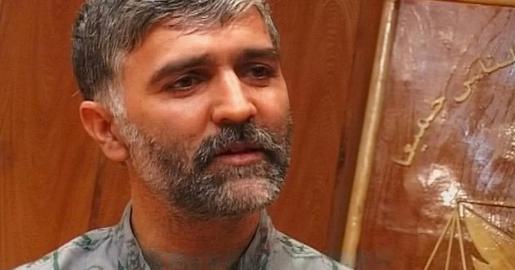
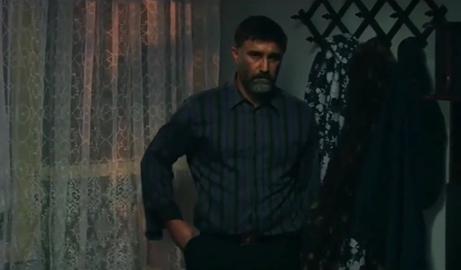


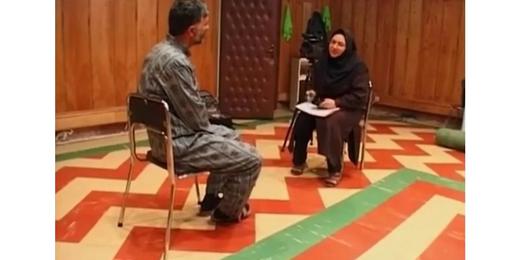

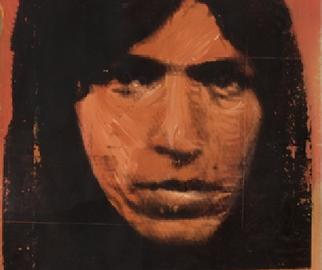
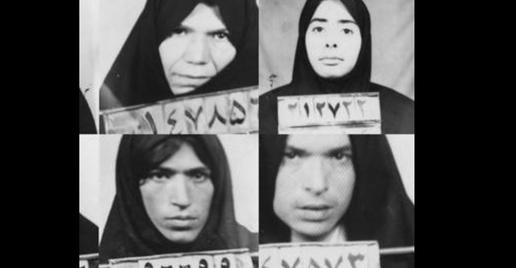
















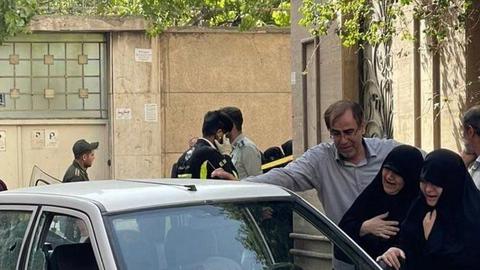
comments